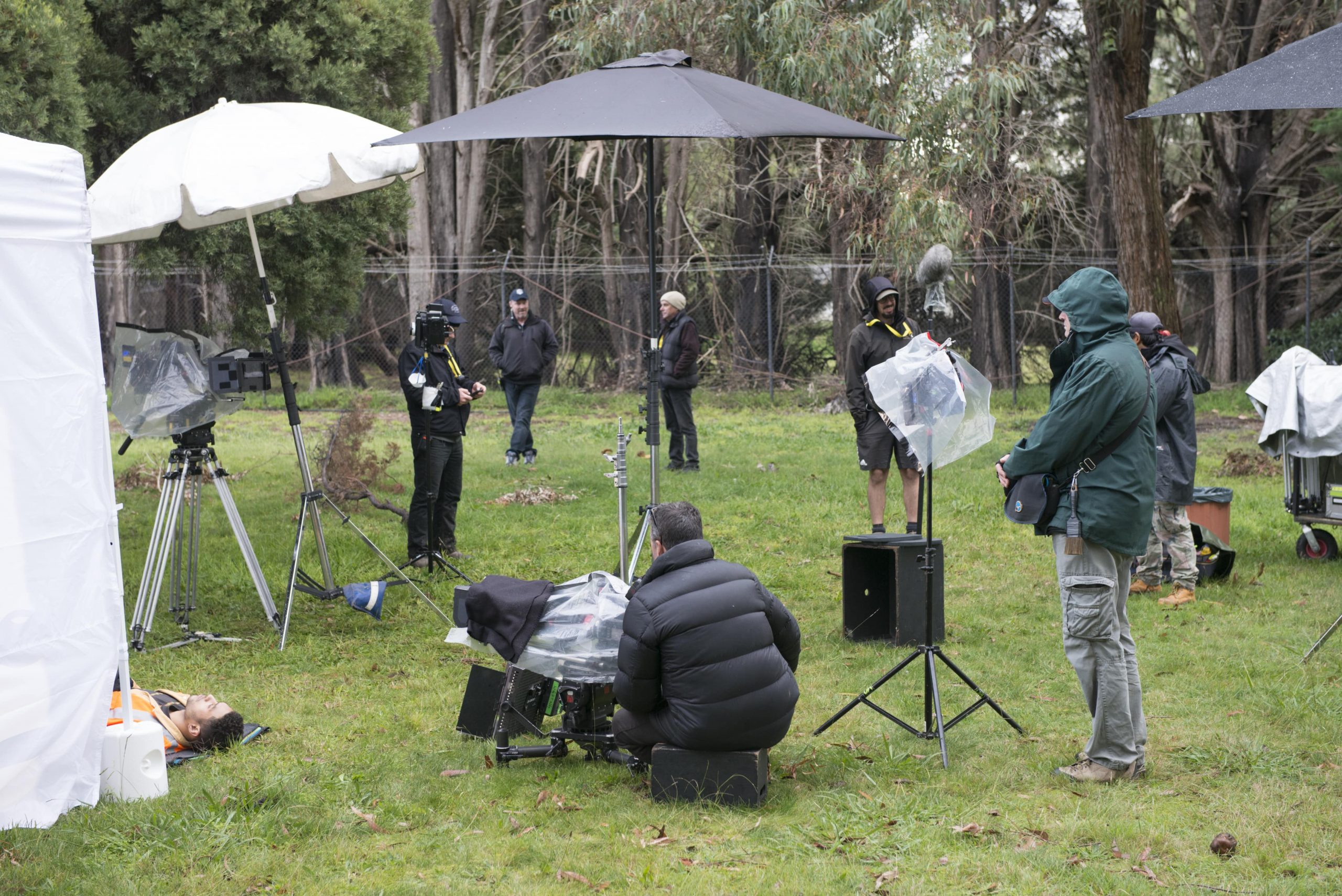
Social distancing is observed during the filming of 'Neighbours' © Fremantle, Neighbours
For a moment in 2020 half of the world was in lockdown. Confined to their homes, people turned to the media for comfort and entertainment. According to data firm Nielsen, in mainland China, this meant that television viewing increased by 70 minutes to 7 hours and 40 minutes per day, whilst in Taiwan, the first weeks of February saw television audiences grow by one million. Unable to attend live shows and cinemas, viewers chose streaming services for distraction, with Netflix declaring in July that it had gained 26 million new subscribers in the first six months of the year. Across Indonesia, Malaysia, the Philippines, and Singapore between January and April, there was a 60% increase in online video weekly streaming minutes.
But while television and digital platforms particularly benefited from a surge in customers, traditional viewing methods floundered. Cinemas were hard hit by the drop in attendees. For example, Japan and South Korea experienced a decrease of 46.2 percent and 65.3 percent in box office revenues respectively, in the first quarter of the year. Meanwhile, behind the scenes, the production, broadcasting, and distribution companies creating the much-loved programmes and films were grappling with how to continue working across the world during a pandemic.
Across the region, projects are put on hold
Explaining the predictable impact the year had on production, Ryan Shiotani, General Manager and Senior Vice President of BBC Studios South & South East Asia said, “There have been obvious issues for BBC Studios’ content pipeline this year, as production has not been able to deliver at full capacity, but we still have some incredible shows that have been completed.” These include A Perfect Planet which is launching on BBC Earth in January 2021.
Similarly, Fremantle’s Asia Pacific CEO Chris Oliver-Taylor explained, “Our Got Talent franchise in both India and Australia have effectively been put on hold, as have a number of dramas including Fremantle’s ViacomCBS drama With Intent being filmed in Melbourne, which has been delayed for ten months.”
Optimism in the industry
In Hollywood alone, more than 120,000 people lost their jobs in March 2020, and production for studio shoots such as the Avatar sequels and Fantastic Beasts 3 was also halted. But after the initial paralysis of the industry, companies started to reopen but with new strict regulations. As early as April, film and television shoots resumed in China, with one of their biggest production centres, Hengdian World Studios, opening the same month.
“The industry is the most buoyant I have ever known and there is a lot of optimism for the future,” said Charlie Fremantle, Studio Manager at London’s Ealing Studio. “Production by its very nature is all about problem-solving and those that work in the industry are a resilient bunch and can adapt to almost any situation—the show still goes on.”
This optimism has been echoed across the field despite the strains the new safety restrictions have put on those involved. This was seen for example in China when creative industry insiders gathered to share ideas about their pandemic survival strategies.

Adapting to a new normal
Innovation and teamwork have been crucial to continued production in the region, with Fremantle for example, adapting to reproduce their game shows with no audiences and using devices like face shields on cameras to offer further protection to its contestants. On Family Feud in Australia, perspex dividers were used between family members, and on Indonesian Idol, they were used between judges.
“In drama, we have been one of the leading lights in Covid-safe production,” said Chris Oliver-Taylor. “Our daily drama Neighbours was the first show back to production and didn’t miss an episode through all of 2020. We split the set into four parts, removed all non-vital crew, and had full-time nurses and Covid-managers to look after our people— it was an incredible success.”
For BBC Studios, strong relationships have meant that despite the year’s limitations, it was able to launch its channels on new platforms, such as the recent 3BB GIGATV deal for BBC Earth and BBC Lifestyle in Thailand, as well as placing its content on new digital services, such as Lionsgate Play in India.
“We have learnt a lot this year about adapting to industry changes and to our viewers,” explained Ryan Shiotani. “We plan to face the post-pandemic world with increased knowledge about viewing habits and with a more innovative approach to the opportunities we have for our content.”
Looking to 2021
New projects announced in the region include BBC Studio and China’s Bilibili co-production series Ancients and Disney+ launching in Singapore with Star. 2021 is projected to be a big year for Korean content as Netflix expands its presence in the region with two new production facilities, with Fremantle announcing a new partnership with South Korean media company CJ ENM for the show I Can See Your Voice, and with Michael Jung Managing Director of CJ ENM Hong Kong forecasting further investment in Korean content.
Despite a tough year, confidence and dynamism can best describe the region’s industry as it moves into 2021.
“Always put health and safety over profits and trust that the brilliant cast and crews that we are lucky enough to work with will find a solution to any problem—it is what they do,” said Chris Oliver-Taylor. “The industry will continue to roll forward.”







